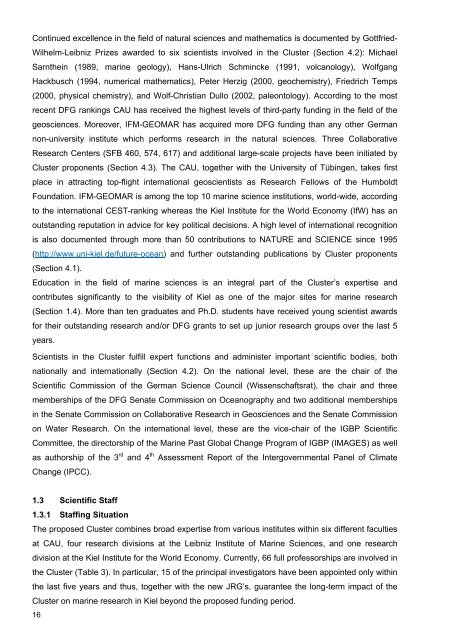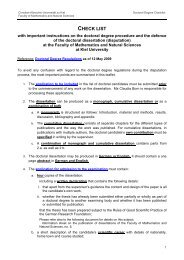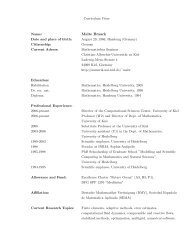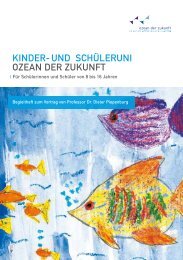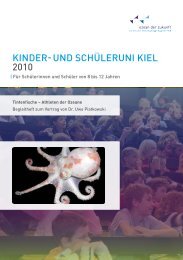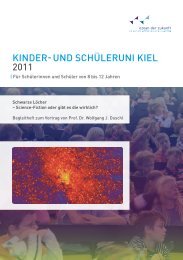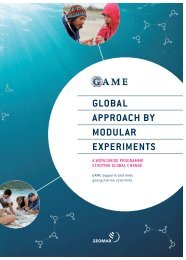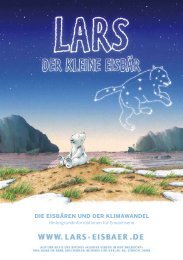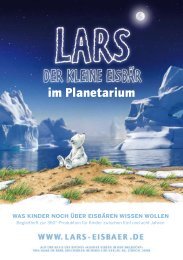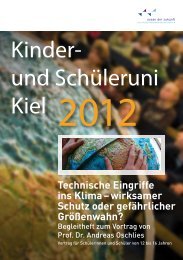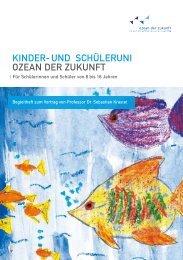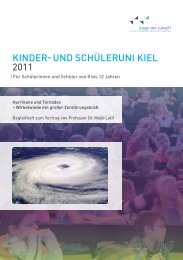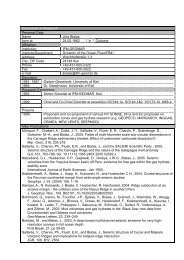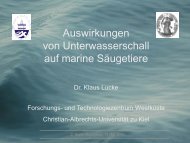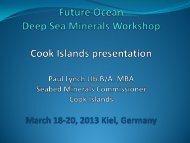Untitled - The Future Ocean
Untitled - The Future Ocean
Untitled - The Future Ocean
- No tags were found...
You also want an ePaper? Increase the reach of your titles
YUMPU automatically turns print PDFs into web optimized ePapers that Google loves.
Continued excellence in the field of natural sciences and mathematics is documented by Gottfried-Wilhelm-Leibniz Prizes awarded to six scientists involved in the Cluster (Section 4.2): MichaelSarnthein (1989, marine geology), Hans-Ulrich Schmincke (1991, volcanology), WolfgangHackbusch (1994, numerical mathematics), Peter Herzig (2000, geochemistry), Friedrich Temps(2000, physical chemistry), and Wolf-Christian Dullo (2002, paleontology). According to the mostrecent DFG rankings CAU has received the highest levels of third-party funding in the field of thegeosciences. Moreover, IFM-GEOMAR has acquired more DFG funding than any other Germannon-university institute which performs research in the natural sciences. Three CollaborativeResearch Centers (SFB 460, 574, 617) and additional large-scale projects have been initiated byCluster proponents (Section 4.3). <strong>The</strong> CAU, together with the University of Tübingen, takes firstplace in attracting top-flight international geoscientists as Research Fellows of the HumboldtFoundation. IFM-GEOMAR is among the top 10 marine science institutions, world-wide, accordingto the international CEST-ranking whereas the Kiel Institute for the World Economy (IfW) has anoutstanding reputation in advice for key political decisions. A high level of international recognitionis also documented through more than 50 contributions to NATURE and SCIENCE since 1995(http://www.uni-kiel.de/future-ocean) and further outstanding publications by Cluster proponents(Section 4.1).Education in the field of marine sciences is an integral part of the Cluster’s expertise andcontributes significantly to the visibility of Kiel as one of the major sites for marine research(Section 1.4). More than ten graduates and Ph.D. students have received young scientist awardsfor their outstanding research and/or DFG grants to set up junior research groups over the last 5years.Scientists in the Cluster fulfill expert functions and administer important scientific bodies, bothnationally and internationally (Section 4.2). On the national level, these are the chair of theScientific Commission of the German Science Council (Wissenschaftsrat), the chair and threememberships of the DFG Senate Commission on <strong>Ocean</strong>ography and two additional membershipsin the Senate Commission on Collaborative Research in Geosciences and the Senate Commissionon Water Research. On the international level, these are the vice-chair of the IGBP ScientificCommittee, the directorship of the Marine Past Global Change Program of IGBP (IMAGES) as wellas authorship of the 3 rd and 4 th Assessment Report of the Intergovernmental Panel of ClimateChange (IPCC).1.3 Scientific Staff1.3.1 Staffing Situation<strong>The</strong> proposed Cluster combines broad expertise from various institutes within six different facultiesat CAU, four research divisions at the Leibniz Institute of Marine Sciences, and one researchdivision at the Kiel Institute for the World Economy. Currently, 66 full professorships are involved inthe Cluster (Table 3). In particular, 15 of the principal investigators have been appointed only withinthe last five years and thus, together with the new JRG’s, guarantee the long-term impact of theCluster on marine research in Kiel beyond the proposed funding period.16


